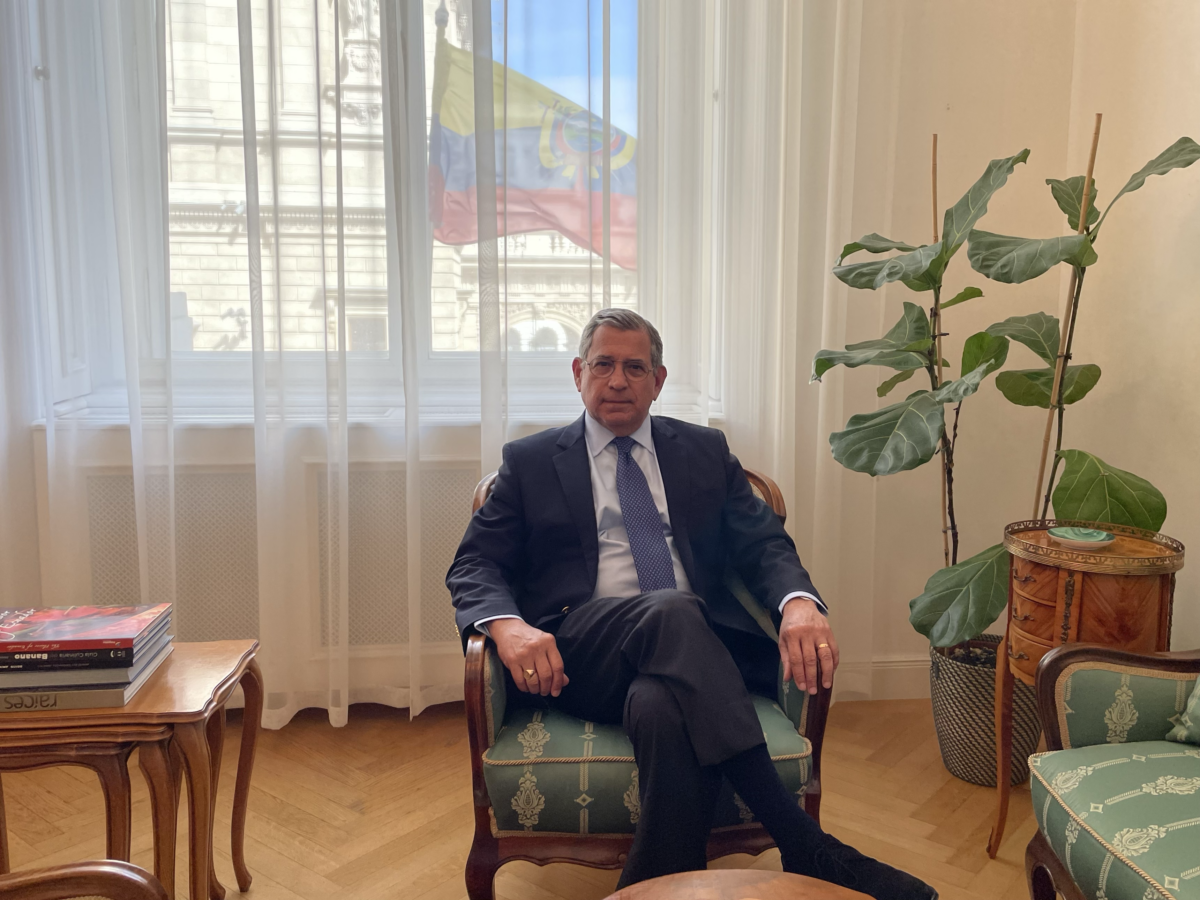
On May 22nd of this year, I had the honor to present my credentials to the President of the Republic of Serbia, Mr. Aleksander Vucic. I must also indicate that since the year 2000 the Republic of Ecuador maintains an Honorary Consulate in the city of Belgrade, which is currently headed by Ms. Kristina Spalakovic Vegas, who has the experience and knowledge to provide an excellent service to assist the entire Ecuadorian community residing in your country as well as to promote the exportable offer, the culture, and tourism attractions of our country.
Did you have the opportunity to visit Belgrade and Serbia? What are your impressions?
Yes, the first time I visited Belgrade was last year in October when I took advantage of this visit to present the copies of the credentials to Mrs. Mirjana Jeremic, Director of Protocol of the Serbian Ministry of Foreign Affairs and to personally meet our Honorary Consul, Mrs. Carmen Vegas who unfortunately passed away a few weeks after this meeting.
In May this year, I presented my credentials to President Vucic. And I hope to be back again in October for an event organized by the Chamber of Commerce of Belgrade and also to inaugurate the permanent exhibition of a replica of a vase which original was discovered in 2007 in the area of Palanda in the province Zamora-Chinchipe in Ecuador and which dates back to 3500 years BC where traces of cocoa were found, confirming that cocoa originated in Ecuador.
The city of Belgrade has impressed me very favourably for all its history, which reflects in its various monuments, churches and buildings in general. I must also highlight the warmth and openness of its people to its visitors.
Although geographically distant, it seems that our peoples are close in mentality and bound by friendship. How do you explain that?
The relationship between Ecuador and Serbia has been marked by a mutual commitment to strengthen cooperation and friendship in various areas. Over the years, we have witnessed a growth in bilateral ties and have shared fundamental values such as equality, the promotion of peace and international security, which has enabled collaboration in international forums, where Ecuador and Serbia have worked together to address global challenges, such as climate change, the promotion of human rights and the struggle against terrorism.
The geographic, cultural and economic diversity of Ecuador and Serbia provides opportunities for the exchange of experiences and knowledge in fields such as agriculture, sustainable tourism, technological innovation and the promotion of culture and the arts. We are convinced that the exchange of ideas and mutual collaboration can lead to positive and mutually beneficial results.
Both countries, despite their geographic and cultural differences, have demonstrated a strong commitment to peace, stability, and mutual respect in the international arena. This affinity in values and principles establishes a solid foundation for cooperation in various areas, such as trade, education, environment and culture.
The city of Belgrade has impressed me very favourably for all its history
Recently, the Latin American community has been growing significantly in Serbia. How big is the community of your compatriots living in Serbia?
Although we are unsure of the evolution that Serbia’s Latin American community has experienced over the past few years, the Ecuadorian community, although feeling its increase over the years, remains smaller comparing to other neighbouring countries.

Latin American countries have traditionally had strong ties. How are these relations reflected in the diplomatic world, and how connected are you with the diplomats of other Latin American countries in Serbia?
Our country maintains diplomatic relations with all Latin American countries and is committed to maintain and respect the principles of a healthy and friendly coexistence, such as respect for non-intervention and self-determination of the people of each country, to always seek peaceful solutions to any dispute that exists, to play a leading role in the conservation of the environment and the protection of our planet. We have just done through the debt swap for the protection of the Galapagos Islands for USD 1.6 billion, historically the highest ever recorded in this type of operation.
We are convinced that the exchange of ideas and mutual collaboration can lead to positive and mutually beneficial results
Can this example of international cooperation be applied to the countries of the Balkans? What do you think about it, and what would you advise our nations if you had the chance?
In my opinion all countries should evaluate and follow the examples of good practices that exist in the world to improve bilateral relations and thus propose to seek common and mutually beneficial objectives so that two countries or a region can join forces and capabilities to obtain the best results.